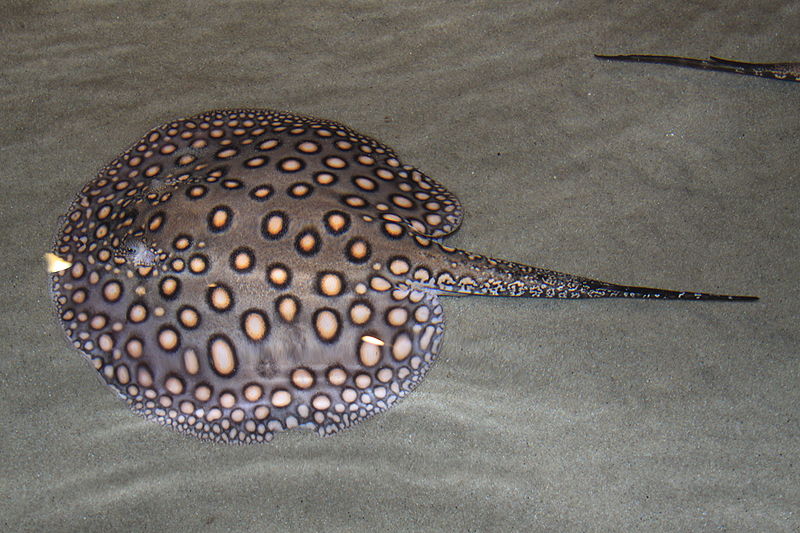
Freshwater fish seem to have good mathematical skills, as primates, bees or birds have already shown, according to a study published this Thursday.
Vertebrates, and some invertebrates, have the ability to distinguish quantities, something that is essential when it comes to looking for food, running away from predators, choosing a mate or moving around in groups.
However, ethologists have not yet figured out how this numerical differentiation occurs: is it a simple estimate based on the size of the group, or do these animals have the ability to count?
Some studies have revealed that some monkeys, parrots, pigeons, spiders and bees were able to process isolated numerical information and solve simple operations.
An experience carried out at the Institute of Zoology at the University of Bonn (Germany) and described in the journal Scientific Reports reveals that fish also possess this gift for arithmetic.
The Maylandia Zebra, belonging to the Cichlidae family, and the motoro ray (“potamotrygon motoro”), two freshwater species, were chosen for the tests.
Eight individuals of each species were subjected to hundreds of tests in large pools specifically designed to observe their behavior.
The objective was that they recognized the color blue as a symbol of addition, and the yellow of subtraction. Scientists introduced into the water cards with a certain number of shapes of blue or yellow color, and then two sliding doors, each with a card with another number of shapes. Only one of those doors was the right one.

When showing him a card with three blue shapes, that is, the color that indicated an addition, the fish had to swim towards the door associated with a card with four blue shapes.
In contrast, a card with four yellow shapes meant that it had to face the door associated with a card in which there was one less shape.
If the fish crossed the good door, they would get a food reward. Maylandia Zebra needed more time to carry out the exercise than did the stripe. For both species, addition was easier than subtraction, according to the study.
This study could explain why both species are able to recognize their congeners by their appearance, for example by counting their stripes or spots, scientists suggest.
The studies carried out with fish are numerous and, in many cases, truly curious. For example, scientists detected that individuals of these species are self-aware.
The phrase “believe or burst” could be applicable if it were not that there is, behind, a team of scientists working on this curious subject. Three years ago, a team of Japanese researchers published in the journal PLoS Biology surprising and unusual results: small reef fish (Labroides dimidiatus), specialized in cleaning parasites and skins dead to others, had passed the test of self-recognition in the mirror.
This test consisted of making a brown mark on a place on his body — usually the throat area — that they could only see indirectly in their reflection. Of the four animals with which the experiment was conducted — a figure similar to that of other studies with other animals — three touched or scraped the signal after swimming to the mirror, thus confirming the fish's ability to self-recognize.
Despite the finding, the research was criticized for several reasons; the main one being that it had been done on small fish, the most primitive vertebrates with small brains.
“Therefore, there may have been errors in the methodology,” Masanori Kohda, from the Graduate School of Science at Osaka City University in Japan, confesses to SINC. Now, the expert provides new evidence in a new study, published in the same journal, where he rejects all criticism and strongly supports the conclusions of his first work.

Now, new research suggests that many other vertebrates could pass the brand test and have self-awareness, something that was not previously appreciated.
According to Japanese scientists, in collaboration with researchers from the Max Planck Institute for Animal Behavior, in Germany, and the University of Neuchâtel, Switzerland, the work is “a breakthrough for studies not only of animal cognition, but also of psychology, which considers that only humans have self-awareness ”, they emphasize. To corroborate their results, the experts increased the sample size to 18 cleaner fish, with a positive result of 94 per cent, that is, 17 of them demonstrated the same behavior as in the previous study.
With information from AFP
KEEP READING
Últimas Noticias
Debanhi Escobar: they secured the motel where she was found lifeless in a cistern
Members of the Specialized Prosecutor's Office in Nuevo León secured the Nueva Castilla Motel as part of the investigations into the case

The oldest person in the world died at the age of 119
Kane Tanaka lived in Japan. She was born six months earlier than George Orwell, the same year that the Wright brothers first flew, and Marie Curie became the first woman to win a Nobel Prize

Macabre find in CDMX: they left a body bagged and tied in a taxi
The body was left in the back seats of the car. It was covered with black bags and tied with industrial tape
The eagles of America will face Manchester City in a duel of legends. Here are the details
The top Mexican football champion will play a match with Pep Guardiola's squad in the Lone Star Cup

Why is it good to bring dogs out to know the world when they are puppies
A so-called protection against the spread of diseases threatens the integral development of dogs




